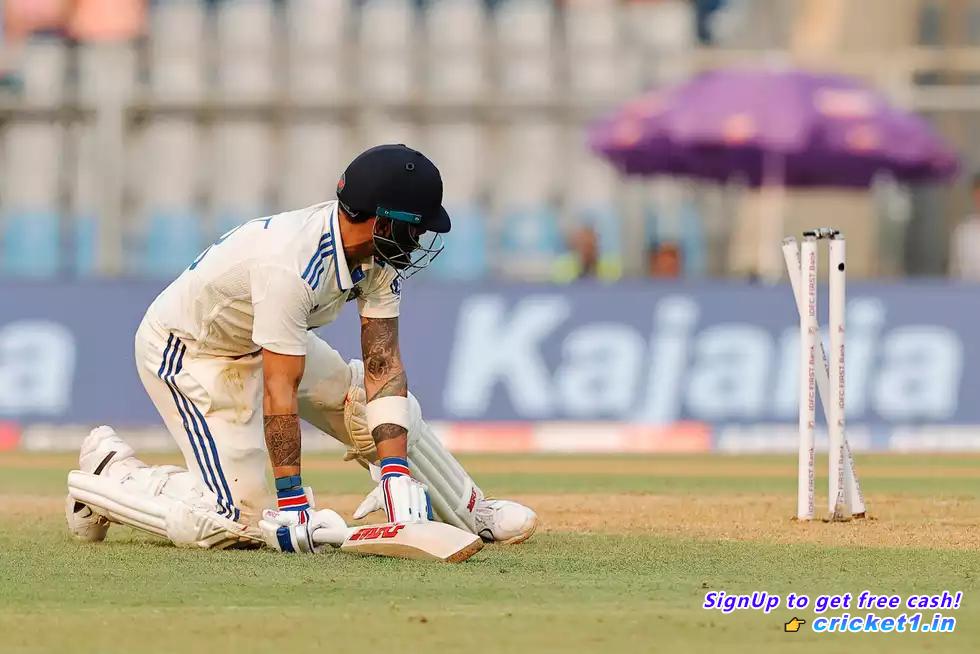
India’s cricket team faced a daunting challenge as they sought redemption in the third Test against New Zealand in Mumbai. With the series already out of their grasp, trailing 0-2, the team had hoped to resurrect their fortunes after a string of poor performances. Yet, errors on the field and a sense of panic among players put India on the back foot once again, bringing into question their preparation and performance on home soil.
A reflective Ravindra Jadeja shared his thoughts on the pressure to perform in India’s home series. “I was afraid of this,” Jadeja admitted, articulating a sentiment likely shared by his teammates. “I had personally thought that as long as I played in India, I didn’t want to lose a single series. But this also happened… Whatever I think about, it happens suddenly.” His words highlighted the spontaneous nature of the setbacks faced by the team.
The first day in Mumbai initially appeared promising for India with a solid start, featuring a 53-run stand for the second wicket. Yashasivi Jaiswal, known for his stellar performance over the year with over 1000 Test runs, looked poised to deliver. However, his dismissal for 32, after a questionable reverse sweep, left analysts questioning the timing and choice of shot. His performance in the series, with a high score of 77, paled compared to his usual standards, emphasizing the dire need for India to capitalize on his batting prowess.
The decision to send Mohammad Siraj as a nightwatchman raised eyebrows, especially against left-arm spin on a turning pitch. Siraj’s immediate dismissal, coupled with a burned review after consulting with partner Shubman Gill, compounded the missteps. With Virat Kohli ready to pad up even before Siraj’s wicket, India seemed out of sync. Kohli managed to avoid a hat-trick by tackling a full toss with measured defense, but his subsequent run-out in a risky single was reminiscent of earlier mishaps that plagued India’s innings in Pune.
Jadeja’s toil earlier in the day saw him single-handedly orchestrate a fightback, breaking through an 87-run partnership and laboriously dismissing New Zealand for 235.
. Despite the taxing humidity affecting players’ grip and stamina, Jadeja had given India a glimmer of hope. “There was a time when I couldn’t even hold the ball,” he confessed, alluding to the humid conditions. Yet, determined, Jadeja had vowed to persevere.
However, with three wickets falling in a span of seven balls later in the day, the day’s efforts seemed undone. Jadeja, at the post-match press conference, found himself defending yet another collapse in the top order. “Obviously it feels like if you’re down 2-0 in the series, that’s why you panicked and you made a mistake,” Jadeja noted. He expressed the common perception that such errors seem more pronounced when the team is trailing. “But when you’re down in the series, even small things always seem big,” he added, acknowledging the high stakes.
He maintained optimism for the following day, banking on the remaining batsmen. “The batters who are coming in tomorrow, by adding 6 wickets, we will do as well as we can to score 230 or more runs,” Jadeja optimistically asserted. The task would be challenging given the precarious start, but he reassured fans of a determined effort.
Distinct from the scenarios faced in Bengaluru or Pune, these unforced errors presented an intricate challenge, difficult to rationalize or rectify swiftly. India’s path to potential redemption was fraught with obstacles, necessitating a collective effort from Jadeja and the remaining lower order batters to keep the team afloat. They aimed for a valiant fightback in the second innings, aware that another setback might put the Test further out of reach.
India’s battle in Mumbai symbolized a crucial moment where learning from mistakes and seizing critical opportunities became imperative. Going forward, the team needed to recalibrate their strategies and mental resilience to regroup and offer a fight worthy of their home advantage.

